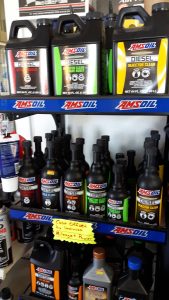Our Diesel Fuel Additives Will Save Your Fuel System and Add Performance Diesel fuel additives are the most overlooked motor maintenance item next to motor oil. An essential product that must be added to every tank. Many diesel drivers mistakenly think a fuel lubricant is okay every other tank. New diesel owners are not being […]
You are browsing archives for
Tag: lubricity
Diesel Fuel Injector Problems: An Easy S...
Diesel Owners Need to be Fuel (Injector) Experts Mark Nyholm|May 23, 2019 8:29 AM It feels like forever ago, but it’s only been 13 years since the U.S. Environmental Protection Agency (EPA) mandated reduced sulfur content in diesel fuel, in 2006. Boy, were people angry. They knew sulfur helped protect their fuel pump and injectors […]

